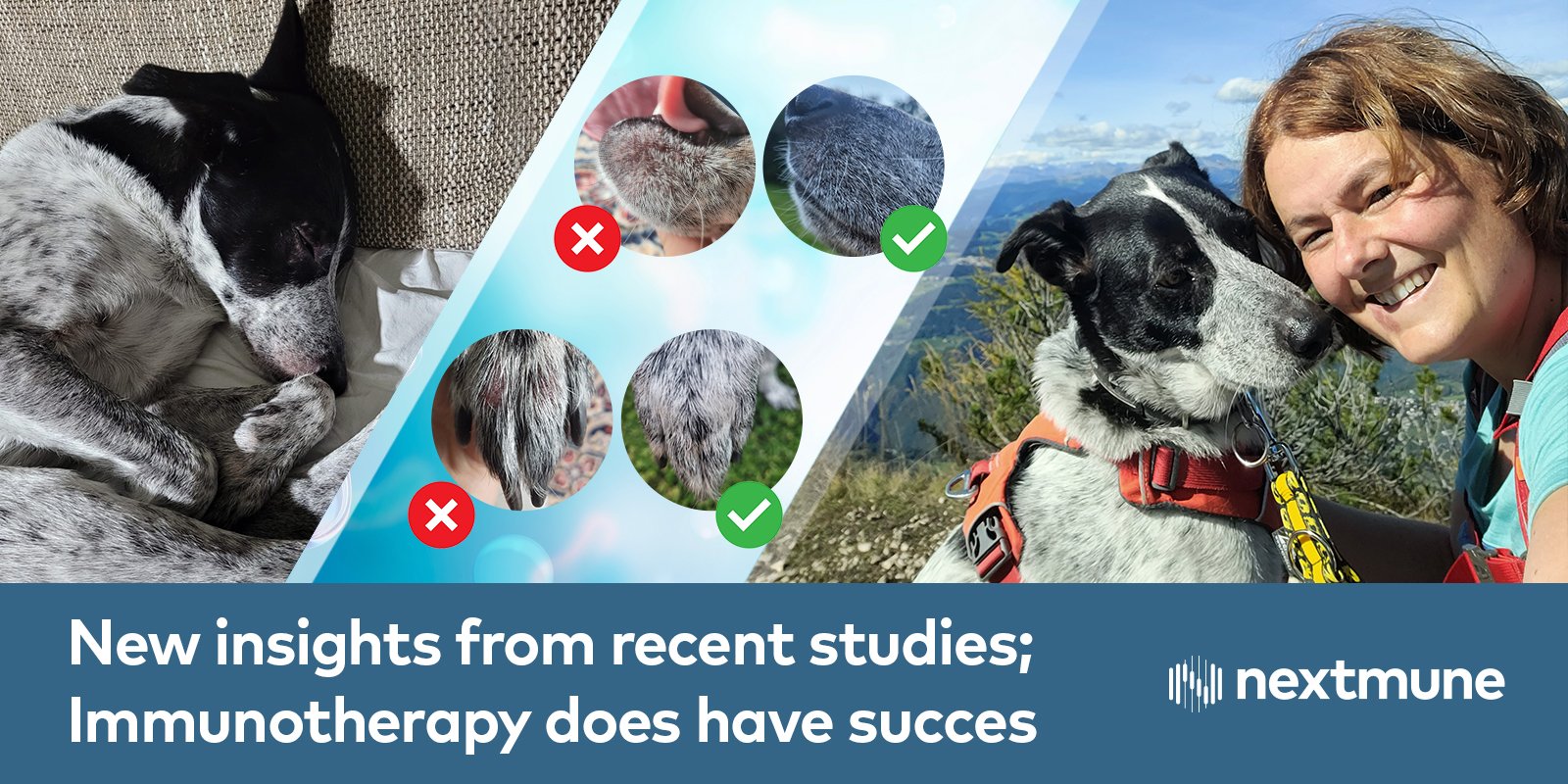Two recent publications provide valuable data on the effectiveness of allergen-specific immunotherapy (ASIT) in dogs with atopic dermatitis. Both clinical outcome measures and owner experiences were investigated, with clear implications for your practice.
These new data underscore that ASIT is not only effective, but also significantly improves the quality of life of both dogs and their owners—provided it is properly supervised and used over the long term.
🔹 Study 1: Owner satisfaction and success rates
Vinberg, C. et al. (Vetaderm Veterinary Clinics, Sweden). Owners' overall satisfaction with alum-precipitated subcutaneous allergen-specific immunotherapy and factors contributing to premature discontinuation in 407 dogs.
- Design: 407 dogs with atopy treated with alum-precipitated ASIT, with long-term follow-up.
- Key findings:
- Success rate: 69.5% overall; 80.7% at >12 months of therapy.
- Owner satisfaction: 74% rated the result as good to excellent.
- Drop-out: 7.6% discontinued <12 months; main reasons: lack of (early) effect, cost or practical objections.
- Time-to-efficacy (TTE): 31.3% improved within 3–6 months; 24.3% between 6–12 months; 18.7% only after >12 months.
🔹 Study 2: Improvement in quality of life
Kotnik, T. (2023). Quality of Life of Allergic Dogs Treated with Allergen-Specific Immunotherapy—A Retrospective Study. Vet. Sci. 10, 72. DOI:10.3390/vetsci10020072
- Design: Comparison between dogs treated with ASIT (n=46) and a control group receiving symptomatic therapy (n=21).
- Key findings:
- Significantly better quality of life (QoL) for dogs and their owners in the ASIT group.
- Less itch-related behaviour during meals, improved appetite and less physical nuisance (e.g. odour, dirty environment).
- Owners reported lower costs, less emotional stress (guilt, frustration) and less impact on social relationships.
- 58.7% achieved a long-term and satisfactory response to ASIT.
- Conclusion: ASIT leads to clear and statistically significant improvements in QoL, which can strengthen owner motivation and compliance.
- Conclusion: Successful outcome requires long-term administration and good communication about the often delayed onset of clinical improvement.
Clinical implications
- ASIT as first choice: It is the only treatment that can influence the underlying immunological pathology and provide long-term remission.
- Patience is essential: In almost 1/5 of dogs, improvement is only seen after >12 months. This emphasises the importance of expectation management.
- Increase compliance: Use QoL questionnaires and structured follow-ups to actively involve owners and maintain motivation.
- Economic benefit: Despite initial costs, successful ASIT leads to lower medication and consultation expenses in the long term.
Sources
- Kotnik, T. Quality of Life of Allergic Dogs Treated with Allergen-Specific Immunotherapy—A Retrospective Study. Vet. Sci. 2023, 10, 72. DOI: 10.3390/vetsci10020072
- Vinberg, C. et al. Owners’ overall satisfaction with alum-precipitated subcutaneous allergen-specific immunotherapy in 407 dogs. Vetaderm Clinics, Sweden.


.jpg?width=700&name=Asthma%20in%20Cats%20Newsletter_1600x800px_v2%20(1).jpg)
